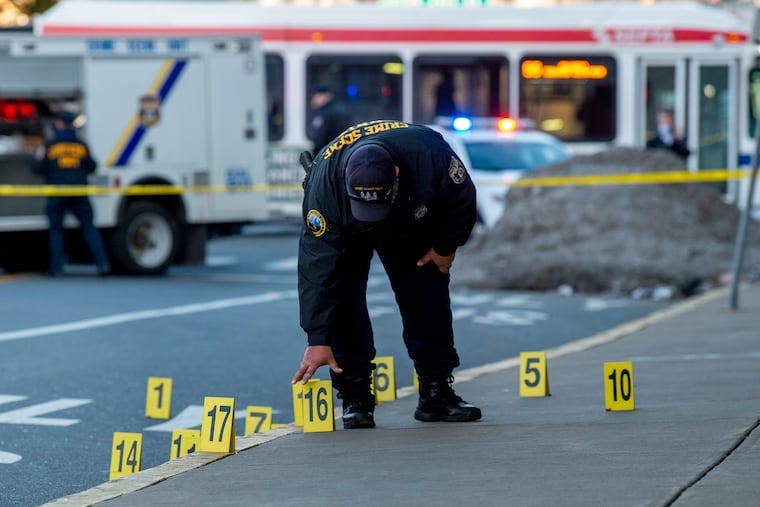At City Council hearing, some call for SEPTA to get tougher on crime and public safety
Shocking crimes in recent months have increased focus on public safety on SEPTA.

A marathon City Council hearing Monday on crime and fear on Philadelphia’s public transit system highlighted the dilemma of ensuring public safety amid rising violence and an increased awareness of the limitations of the use of police force.
SEPTA leaders described how they are putting millions into increased social services, saying that bare-knuckled law enforcement can’t address many problems.
Meanwhile, some councilmembers, advocates, and unions representing the agency’s employees called for SEPTA to get tougher on disorder aboard trains and buses.
“There’s nothing like a uniformed officer going in between those [subway] cars,” said Councilmember Curtis Jones Jr., noting he frequently hears from people who feel unsafe on stretches of the Market-Frankford El in West Philadelphia. “There is no substitute for those boots on the ground.”
Councilmember David Oh pushed for the joint hearing of Council’s transportation and public safety committees after recent high-profile crimes on SEPTA — the racially motivated beating of a Central High School student Nov. 17 on the Broad Street Line, and the rape of a woman last month on a westbound Market-Frankford train near the 69th Street Transportation Center.
More broadly, SEPTA riders and employees complain of a rising number of people addicted to drugs, experiencing homelessness, or suffering from serious mental illness on transit and of feeling unsafe as they travel.
Tougher enforcement won’t solve those and other societal ills that affect transit, Transit Police Chief Thomas Nestel testified.
“Society no longer accepts that view, and the message has been clearly sent through protest, legislation, [and] changes in prosecution,” he said. “The transit police do not fight society’s call for change. They embrace it and adapt.”
SEPTA is spending $3.6 million on social service specialists to team with police officers and to work in high-volume El stations such as those in Kensington, the epicenter of the city’s struggle with opioids. By the end of this year, Nestel said, the agency will have 50 outreach specialists who steer people in need to recovery from addiction, behavioral care, or shelter.
Oh, the councilmember, said SEPTA’s efforts are admirable, but “it seems like they’re doing a lot of things about a lot of things [except] but what they should be doing … ensuring that those who use this system are safe.”
Third District Councilmember Jamie R. Gauthier praised SEPTA for approaching the issue “creatively” and said there are other nuanced approaches that could help, such as having non-officers on trains to keep the peace after school.
” I would encourage us to do that before we kind of go back into the same habit of asking our police officers to do everything,” she said. “That’s not the only solution that we can employ.”
Omari Bervine, president of the transit police officers union, said police patrols are spread thin, with perhaps 33 officers covering the entire SEPTA system on a typical day shift. He blasted the agency for its hiring of contracted security guards.
“Continuing to pour much-needed financial resources into this failed security guard program instead of using those resources to actually make your passengers safer by hiring more police is not only unwise, but it’s also dangerous,” Bervine said.
Transport Workers Union Local 234 has been pushing for bolder action for months, and union vice president Brian Pollitt said SEPTA leadership has responded with excuses, such as financial straits and using stopgap measures such as security guards.
“Instead of covering their asses and leading from behind or via Zoom from their home offices they need to act on safety and security now,” said Pollitt, who was recently named acting president of Local 234, taking over for union president Willie Brown, who has plans to join the international union.